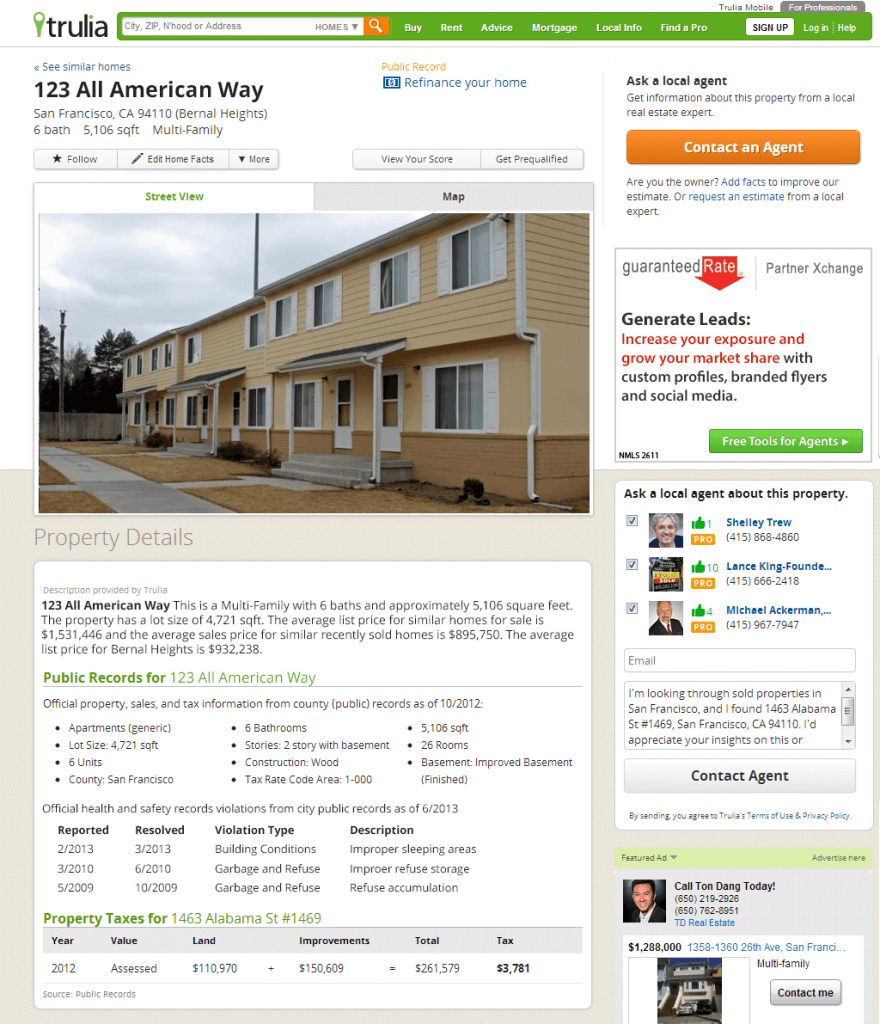
Accela is partnering with San Francisco Mayor Ed Lee and Code For America to launch the House Facts Data Standard. Today, Jack Madans, Community Manager for Code for America, shared his thoughts on the partnership, the standard and the case for open housing data:
With an average of 36 million Americans changing homes every year, we’re a country constantly on the move. But too often there’s more than meets the eye at an open house. Broken plumbing, faulty heat, pests, or absentee landlords are just some of the unpleasant surprises that arise after the lease or deed is signed. More seriously, poor ventilation, asbestos, mold, and lead constitute hidden hazards that can lead to poisoning and chronic disease. The victims are most often children.
Cities and counties are on the front lines of this fight, helping their residents avoid these costly nuisances and tragedies through the enforcement of health and safety codes. Around the country public servants document complaints, perform inspections, and track the compliance of thousands upon thousands of homes in each of their jurisdictions.
Now local government has a new way to get the facts about housing into the hands of more citizens. Today, San Francisco Mayor Ed Lee, Code for America, and a coalition of industry and government partners announced the House Facts Data Standard. This uniform, machine-readable data format — authored by Rajiv Bhatia and Cyndy Comerford from San Francisco Department of Public Health — amounts to a health and safety history of every house and apartment within participating municipalities.
This uniform format allows this data to easily travel to the online platforms people depend on to make decisions about their next lease or home purchase. Trulia, the online real estate marketplace, has committed to displaying data published in the standard to the more than 31 million unique homebuyers, sellers, renters, and real estate professionals who visit the site every month. But, Trulia doesn’t stand alone. Other service providers like Lovely, Padmapper, and Civic Insight will consume this standardized data to inform and empower their users in unique ways.
That’s just the start. Civic hackers and savvy entrepreneurs will look at this data and see the raw material for telling visualizations, insightful analytics, and apps that can help public servants modernize the code enforcement process. Technologists will find a growing market opportunity for such products since tools built on the standard can scale more easily to other participating governments.
Thanks to the CfA team, you can use this nifty House Facts Viewer to explore the violations in your favorite San Francisco neighborhoods.
We are excited to help municipalities across the country join the standard through our Peer Network. We’re working with leading technology vendors Socrata and Accela to get more cities on the standard, faster. These companies will provide technology and support to help their government customers provide compliant feeds and APIs.
We’re pleased to announce that the House Facts Standard is debuting with a number of committed governments this weekend at the U.S. Conference of Mayors. The City of San Francisco is joined by cities large and small across the country — including Las Vegas; Olathe, Kan.; Kansas City, Mo.; Bayview, Wis.; and both Gary and Bloomington, Ind.
We’ve seen how valuable transit data can be when standardized, and integrated with Google Maps. More recently, restaurant inspection scores have found their natural home next to Yelp reviews. The House Facts Standard proves again creating modern, meaningful technology for government doesn’t mean they must build it themselves. Before building software from scratch to get valuable information into the hands of citizens — they should consider great technology that’s in plain sight.
Questions? Comments? Hit us up @codeforamerica



